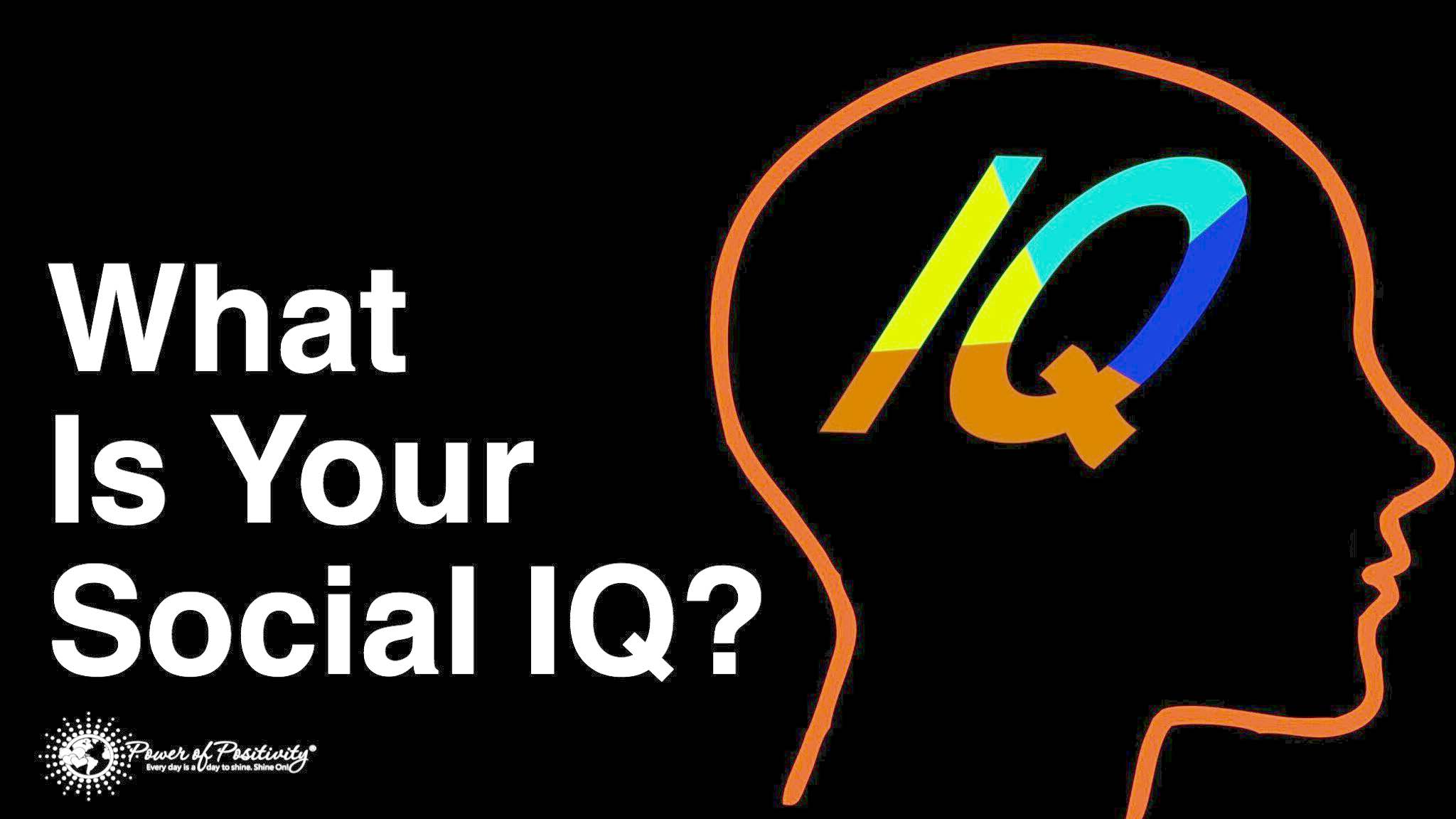Our ability to connect meaningfully to another person is one of our greatest gifts as humans, and it is what defines social IQ. How well can you connect to another person?
Social intelligence is responsible for some of our planet’s most essential and well-paying jobs. We pay more to people who are well-skilled in social interactions because society highly values those skills.
Here are just a few examples of some highly paid careers that are people-focused and which require a high level of Social IQ:
- Lawyer
- Politician
- Sales Rep
- Public Relations
- Human Resources
- Psychiatrist
- Marketing
The ability to persuade others and the ability to be sensitive to the needs of others are also skills that people with a high Social IQ have.
How do we measure social IQ?
On a basic level, social intelligence is your level of skill at getting along with many different types of people. Picture it like this; if you were placed in a room with 10 people, only one of whom spoke your language, would you be able to make a connection with one of the nine people who couldn’t communicate verbally with you? Would you connect with the one person you could talk to, or would you be alone?
One well-known test of social intelligence is the George Washington University Social Intelligence Test (GWUSIT). This specific test was created to ‘measure certain factors of judgment, information, and memory related to dealing with people and carrying on social relationships.’
In a study of the use of the GWUSIT, researchers found a sex difference in Social IQ for women and men. They discovered that women seem to have a higher Social IQ and they tested on average 5 points higher than men. The reason behind women’s higher Social IQ may be genetically encoded into our chromosomes and DNA.
Related article: 7 Ways to Show Emotional Intelligence
Evolutionarily speaking, women who could discern the subtle differences between a potentially successful mate and a mate who was less likely to provide for a family were able to have children who survived to pass on the Social IQ genes. Women seeking a suitable mate would have had to be able to tell intelligence, trustworthiness, reliability, and probably looked for stamina or energy as well.
What Is Your Social IQ?
Let’s look at some of the essential traits of someone with a high level of interpersonal intelligence.
Communication skills
Listening and speaking are both equally important here. Communicating your needs well means that you can ask for what you need to be happy. Listening is possibly more important though and could be expanded upon to include the ability to pick up non-verbal cues.
For example, when you are listening, can you tell what someone gets excited about? If so, this means that you can detect what motivates a person. This information comes in handy when you are trying to negotiate for something you want with someone with a high Social IQ.
Knowledge of and ability to follow social rules
Most people know that ‘double dipping’ their chip at a party is a social faux pas. But if you don’t know the rules and offend someone, it could reduce your likelihood of an invitation to party with those people again.
Rejection from a social group is a fear that many people have, and with good evolutionary reason. In our evolution, rejection by the group meant having to fend for yourself without the relative safety of a group to scare off predators.
Managing impressions
When a person wants to be accepted into a specific social group, they learn about that group and begin to mimic the traits of the group. Taking control of the image you portray to others while still keeping your authentic self is something that most of us have done at one time or another. For example, who you are in a job interview is very different from who you are at the bar on Friday night.
For example, someone who wants the acceptance of a wealthier group of people might try to be seen by members of the group while wearing designer label clothes. They would also behave like those they wanted to be accepted by, in their way of speaking, hand and facial gestures, posture and other movements.
Role flexibility
Being able to change what you focus on now versus what you will focus on when you have a small child clinging to you is one example of role flexibility with Social IQ. Real-self versus parent-self is one role switch that we have to make.
Roles that most of us have all experienced at some point include:
- Teacher
- Student
- Beginner
- Expert
- Lover
- Rejected romantic partner
- Driver
- Passenger
Related article: 5 Reasons Introverts Make the Best Relationship Partners

















